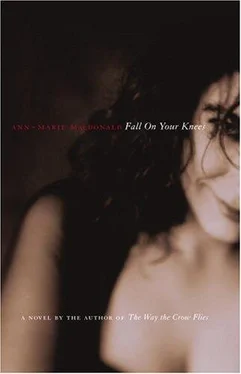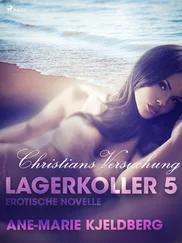He goes to the mouth of a certain stream and meets the dories that row in from the boats anchored offshore on “rum row”. These boats are en route from the British colony of Newfoundland, where liquor is legal, to points down the coast as far as New York City. James carries barrel after barrel and case after case up the middle of the stream to a hiding-place. He returns the next night, loads up his automobile and makes trips from the hiding-place to his secret premises back in the woods. He is starting to feel too old for all this lifting and ferrying, however, and is considering hiring a couple of younger or poorer men. There are plenty of both kinds about these days.
One strike follows another: ’22, ’23, and just this past March of ’25 the miners walked out again. It reminds James of New Waterford’s bad old days before the war. Outside Cape Breton, the twenties are roaring. But the famous postwar boom never hit here. At least not for ordinary people. Things have gone from bad to worse. The politicians and the captains of industry blame it on that mysterious mechanism, “the world economy”. But even James recognizes this as a euphemism for “God-forsaken sons-of-bitches who took everything out of here and never put a thing back”. Many miners’ children walk to school barefoot and eat lard sandwiches soaked in water to give them substance — this during times of full employment. No one knows it yet, but Cape Breton is a dress rehearsal for the Great Depression.
It’s not surprising that bootlegging is tolerated. Who can blame a body for seeking to supplement his income a little? Or for just brewing some consolation to share with friends and family around a fiddle? And that’s what most people do. It’s unusual to find a local who sells homemade ’shine at more than cost. And it’s unusual to find someone who doesn’t have a jug stashed somewhere, if not a vat on the stove. The story goes that Father Nicholson opened Mount Carmel’s rectory door to a stranger who enquired, “Where can a fella get a drop around here, father?” And the priest replied, “Well, my son, you’ve come to the only place in town where you can’t get a drop, although I don’t know, my curate might be selling.” The few serious bootleggers tend to be good fellas — wild but not bad, and certainly not stingy or vindictive. Even the Mounties enjoy the game, no matter how often they’re outwitted, and a mutual respect flourishes. Win some, lose some.
Naturally there is a Women’s Christian Temperance League, but they are a Protestant bevy and New Waterford is a Catholic town. Even in Sydney, where there are more teetotal Protestants, the hotels serve strong drink with only the threat of now and then being charged a token fine for a first violation. A second violation shuts you down, but a proprietor would have to make himself very unpopular in order to have his twentieth violation designated a “second”.
There is no shame in bootlegging. Not the way it is practised by most people. James, however, is a professional. At his shack, in the middle of a secret clearing in the woods, he takes genuine scotch and gin, real rum, and cuts it all with his own lye-quickened concoction that bubbles day and night. He reseals the genuine liquor bottles and turns a handsome profit. It helps that he doesn’t have friends to blab to. Otherwise one thing leads to another and, before you know it, the Mountie who has just turned up at your still to purchase a drop of Christmas cheer is duty-bound, come New Year’s, to burn you down, no hard feelings.
Like the professional he is, James sells only to those most likely to pay: to several wealthy individuals who do their drinking at home and can afford a cut above the usual “recipe” of molasses, yeast and water. And to most of the hotels and blind pigs from Sydney Mines to Glace Bay — where the liquor gets diluted again. He no longer sells to miners because he has grown weary of collecting debts. James has read in the papers about spectacular outbreaks of violence down in the States, where gangs fight for control of their patch and men are shot over bad debts. But in James’s experience, all that’s usually required is a threat to tell the poor bastard’s wife. James is sick of hearing their sob stories. If their children are so hard up, they shouldn’t part with a penny for his poison. And they need look no further than James himself for a good example: he doesn’t touch a drop.
All this helps to keep James well and truly hated. Why? Because I’m not disappearing down the same drain they are. Because I have the guts and the sense to support my family.
Not only does James’s work keep meat on the table when most people are lucky to get porridge, and good clothes on his children’s backs when many go about in made-over flour sacks — the hours allow him to devote himself to what matters: Lily.
James has stopped counting his books; there are too many. Mercedes and Frances have dipped into all the crates and he encourages them. But for his own part, he barely has time to glance at the newspaper before supper, and daytime is reserved for teaching Lily.
They do a different letter of the Encyclopaedia Britannica each day for two hours. James assigns passages for Lily to memorize and he quizzes her as to comprehension. She writes miniature essays on butterflys, boxcars, Bulgaria and Big Berthas. Lily loves to learn, but most of all she loves Daddy. After book-learning, James takes Lily for drives in the automobile. Sometimes they stay away all night; like the time they went to St Ann’s and saw the home of Angus McAskill, the Cape Breton Giant. Lily saw a picture of the big man holding Tom Thumb on the palm of his hand. She was awed by the tender bond between giant and midget — glad they had each other.
James has got permission to keep Lily out of school. She is crippled. It makes sense that she would be delicate. Everyone assumes she is — everyone but Frances. James doesn’t entirely approve of the closeness that has developed between Lily and Frances, but he can’t deny Lily anything. He just tries to keep track of them. Always at the back of his mind is the episode in the creek the night Lily was born and he caught Frances trying to drown her. Only James knows whom Lily has to thank for her withered leg, because surely Frances was too young to remember. Just as she was too young to remember the second infant….
Now and then at dawn, on his way home from a night’s work, James stops at the cemetery and visits Kathleen. He doesn’t leave flowers. What’s the point? He may pull a weed if it obscures her name. Her headstone is dignified and free of second-rate sentiment. It says simply, “Beloved Daughter”. James does not tend Materia’s grave because someone else does that. “Call’d from the cares of this world.” Someone also leaves flowers, he doesn’t know who. James stands as still as the stones, looks out at the water and feels how small the world has become. Europe is in front of him. Home is behind him. And at his feet….
At this hour there is always a mist about a mile out. James is a Catholic but he cannot believe in life hereafter. Not for himself, anyway. Sometimes, though, when he looks out at the fog on the water, he feels comforted.
Mercedes is in love. He is tall — at least she thinks so — dark, that’s for sure, and handsome, no question. His eyes burn into her very soul and seem to say, I need so much, so badly, for a good woman to love me and tame me. He wears a turban. He is most often to be found in his lavish striped tent, or galloping across the sands on a white Arabian charger. He is Rudolph Valentino. Mercedes does not know whether to hate Pola Negri with all her heart, or to pray for her since she has been entrusted with Mercedes’ one true love. She prays for Valentino every night. She has never heard his voice, but somehow she has married his silent image to the rich baritone of Tita Ruffo, whose every recording she possesses.
Читать дальше












